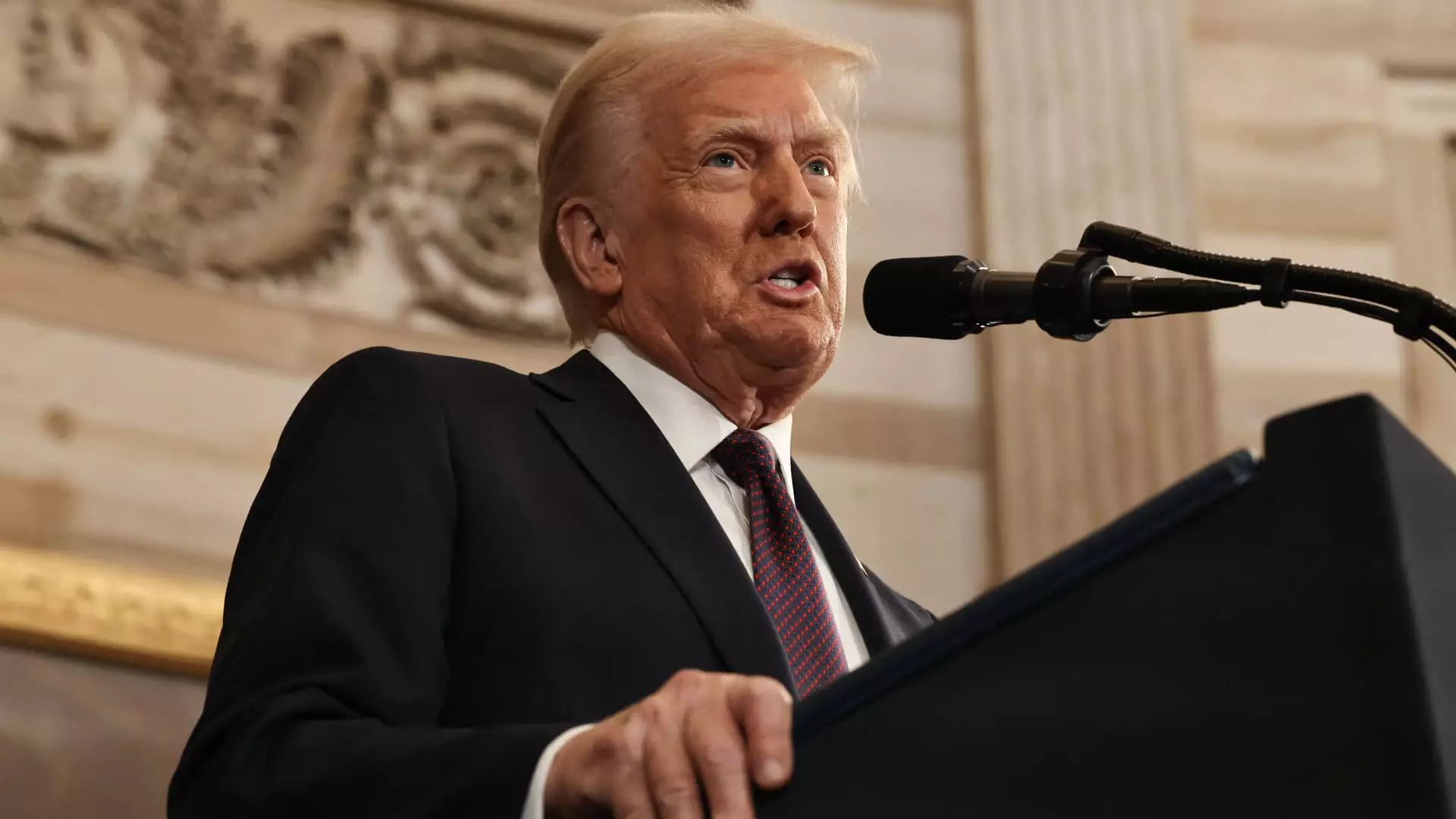Just five months ago, President Donald Trump’s bold declarations about bringing peace resonated across the nation. He painted a picture of unity and promise, asserting that his administration would be defined not by needless wars but by the resolution and avoidance of conflict. Yet, in the wake of a military strike on Iranian nuclear sites, that vision appears not only naïve but outright hypocritical. The stark contrast between his inaugural aspirations and the impending reality of armed conflict mirrors the perennial struggle of American leaders—a struggle to maintain their ideals in the face of political pressure and international crises.
Trump’s earlier proclamations about being a “peacemaker” have become eerily ironic in light of recent events. The hard turn towards military engagement raises serious questions about his credibility. In the heat of the moment, when he confirmed the strikes on Iran in a post on Truth Social, the poignant declarations of peace were drowned out by the clatter of bombs—the physical manifestation of a profound breach of promise.
Breaking Campaign Promises
In the chaotic labyrinth of American politics, campaign promises are often mere rhetoric fueled by the desire for electoral success. Trump’s frequent commitments to avert war and chaos have now been thrown into disarray. Just days before the strikes, he hinted at a willingness to wait and explore diplomatic avenues. Yet, the misalignment between his words and actions demonstrates a troubling pattern: the tendency of leaders to prioritize immediate threats over long-term peace strategies.
The American populace, ever keener on a narrative of resilience and strength, may find the latest developments igniting a sense of betrayal. Trump’s supporters, who once rallied around his claims of preventing World War Three, are left grappling with the image of their president deploying military action rather than negotiating peace. This pivot raises a critical introspection: can voters reconcile their support for a leader who appears to operate in contradiction to his pledge of tranquility?
The Historical Context of Military Intervention
The strikes against Iran lay bare the historical context of U.S. foreign policy—a dance of power, diplomacy, and militarism that often ends in regret. The echoes of past conflicts—Vietnam, Iraq, and Afghanistan—serve as a grim reminder of the long-lasting consequences of military engagement. While Trump has attempted to distinguish himself from his predecessors by articulating a need to avoid further entanglement, the current trajectory suggests a dangerous willingness to conflate military might with national strategy.
This pattern is particularly troubling given the complexities surrounding Iran’s nuclear ambitions. The fear of a nuclear-capable Iran has long overshadowed rational discourse, leading to decisions borne of anxiety rather than diplomacy. Trump’s withdrawal from the Iran nuclear deal in 2018 not only magnified this fear but also curtailed potential pathways for dialogue. With bombs now falling upon Iranian soil, it appears that his administration has unwittingly narrowed the corridor for negotiation, possibly making the very fears he sought to allay a grim reality.
A Call for Solutions Beyond Bombs
The notion of peace has always been too valuable to be sacrificed at the altar of military action. The United States can—and should—seek alternative avenues for resolving its most pressing foreign policy challenges. While the temptation to use force often looms large, the need for diplomacy and meaningful engagement cannot be overstated. The fight for a more peaceful world requires persistent commitment, kindness, and a refusal to default to aggression.
As the fallout from this recent military action unfolds, it beckons a chorus of voices advocating for solution-oriented approaches rather than violent displays of power. America stands at a crossroads; its yearning for stability and enduring peace necessitates a reevaluation of its strategies. The international community deserves a nation that prioritizes understanding over conflict, one that resists intoxicating impulses towards aggression and instead fosters a culture of dialogue and compromise.
What remains to be seen is whether Trump’s administration can pivot back to the ideals it professed so recently or continue down a path that jeopardizes not just his legacy but the lasting prospects for peace in volatile regions around the globe.


Leave a Reply